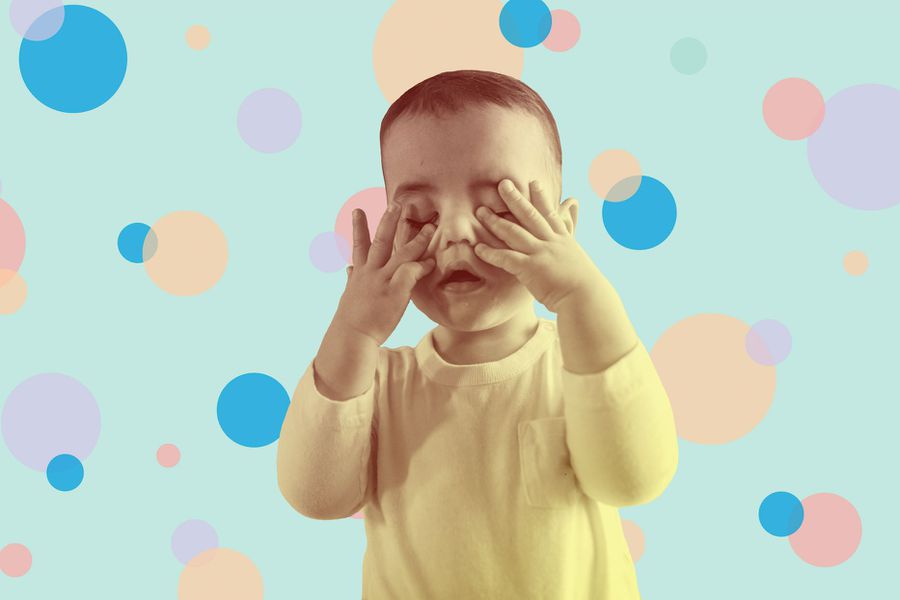
Most parents can attest that their little ones get sick pretty often. They're constantly exposed to germs through other kids and the objects they share. So how do you prevent the transmission of colds, flus, and other illnesses?
As we all learned during the COVID-19 pandemic, kids should keep their distance from others who aren’t feeling well. But try telling that to a 4-year-old who spots a BFF! Washing your hands with soap and water (or using hand sanitizer with at least 60 percent alcohol) can help prevent transmission of some viruses. Beyond that, experts stress the importance of not touching your face, which, as all parents know, is difficult for little ones.
“One way to avoid germs is to prevent them from entering the mouth, eyes, or nose,” says Jennifer Shu, M.D., a pediatrician with Children’s Medical Group in Atlanta. Mucous membranes can become portals of illness, delivering germs straight into the body. There’s even a word for introducing them yourself: self-inoculation. “Keep kids’ hands busy so they aren’t tempted to touch their faces,” Dr. Shu adds.
Here are a few ideas to curb their nose-picking, eye-rubbing, and mouth-touching tendencies—all of which can spread illness.
1. Have Tissues on Hand
Adults touch their faces 23 times an hour, says the Centers for Disease Control and Prevention (CDC). Children have even less self-control, so the number is probably pretty exponential. Keep tissues in the car and house so kids can use them to blow their noses and rub their eyes. They can also use tissues as hand covers to scratch an itch. “Wash or sanitize hands often so if they do touch their faces, at least their hands are clean,” says Dr. Shu.
2. Give Them Something Else to Do With Their Hands
It’s no wonder so many children pick their noses. One horrifying study found that 91 percent of adults do it, and probably for the same reasons kids do: Boredom, nervousness, or to relieve an itch. Providing little ones with toys like fidget spinners, puzzles, and yo-yos will keep their hands busy, while a nasal spray may help soften thick mucus for blowing out, they so they aren’t as tempted to pick. You can also keep mouths occupied with treats like fruit pops.
3. Keep Hair Out of Their Faces
Like all of us, kids can't stand it when shaggy bangs fall in their eyes, or long hair sweeps across the bridge of their nose as they lean over. The urge to push hair away or swipe unruly locks back off the forehead can have them constantly putting their fingers near their eyes and noses. Keep short hair trimmed or long hair pulled back so it doesn't tickle their faces, suggests Dr. Shu. Headbands, bobby pins, and barrettes are your friends. Some kids will love the idea of wearing hats or plastic tiaras, too.
4. Stay Away From Sick People
Yes, it might be impossible to keep kids away from sick friends whose parents have sent them to school or on a playdate, convinced their sniffles aren’t a big deal. You can have a quiet discussion with kids about the need to stay at least 6 feet away from people who are coughing or sneezing (or show them a COVID-19-related video to explain why distance can be important). Kids can also wear masks as long as they are over age 2.
Still, if you're worried about illnesses, it might be easier to emphasize outdoor playdates where the risk of transmitting them is lower. Encourage parents in your circle to tell each other when their kids are sick.
The Bottom Line
With a little extra dedication to hygiene and a little more awareness of where our kids are putting their hands, we can help keep them safe—not only from COVID-19, but from influenza and common colds as well.
